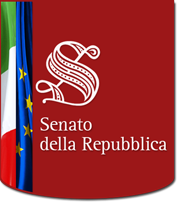Ictus. Quanto sono efficaci le campagne di informazione sanitaria (e salvano davvero la vita ai cittadini)?

L'ictus è la terza causa di morte in Italia e la prima causa di invalidità. Ogni anno 200.000 persone ne sono vittime, con gravi conseguenze di disabilità per i sopravvissuti. E le prospettive per il futuro non sono rosee: tra il 2015 e il 2035 i casi di ictus nell'Unione europea aumenteranno del 34%, con un aumento del 45% di casi di morte e del 25% di danni permanenti. In aumento saranno anche i costi sociali: l'invalidità di chi supera la fase acuta e sopravvive per un tempo medio di 10 anni determina una spesa intorno ai 100.000 euro.
Si può fare qualcosa? Certo: l'ictus è una malattia spesso curabile, a patto di arrivare in ospedale entro 3-4 ore dall'insorgere dei primi sintomi. Molti paesi, Italia compresa, stanno perciò svolgendo campagne di informazione sanitaria rivolte ai cittadini. Ma, come per altre politiche pubbliche, è determinante capire se funzionano, cioè se producono un reale cambiamento. La valutazione in questo è fondamentale: qui l'esempio di cinque campagne FAST.
Stroke. How effective are health information campaigns (and do they really save people's lives)?
Stroke is the third leading cause of death in Italy and the leading cause of disability. Every year 200,000 people fall victim to it, with severe disability consequences for survivors. And the outlook for the future is not bright: between 2015 and 2035, stroke cases in the European Union will increase by 34 percent, with a 45 percent increase in death and a 25 percent increase in permanent damage. Also on the rise will be the social costs: the disability of those who overcome the acute phase and survive for an average time of 10 years results in an expenditure of around 100,000 euros.
Can something be done? Of course: stroke is an often curable disease, as long as you arrive at the hospital within 3-4 hours of the onset of the first symptoms. Many countries, including Italy, are therefore carrying out health information campaigns aimed at citizens. But, as with other public policies, it is crucial to understand whether they work, that is, whether they produce real change. Evaluation in this is crucial: here is an example of five FAST campaigns.






 Focus
Focus